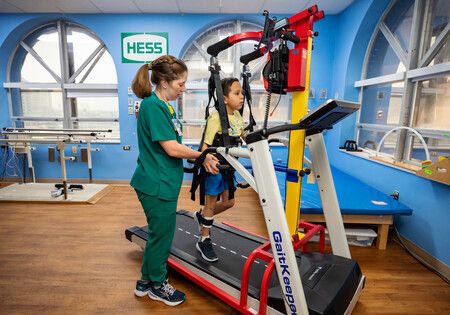Hiring good people is hard. Hiring good people with specific skills, or credentials is harder. Hiring good people with specific skills, or credentials, in an industry where the demand is outgrowing the available labor pool, well, that is nearly impossible.
While it may sound like a glass-half-empty view on the economics of labor this is the exact, and unfortunate, a situation that many leaders in some of America’s largest, and most crucial, industries are facing every day.
Companies operating in the health care, transportation, trades and wellness sectors, to name a few, report significant shortages in qualified staff to support their company’s mission. For these folks, the need for qualified employees, necessary to meet demand, has far outgrown the pool of available employees, with the appropriate qualifications, and it is causing a real mess.
If you find yourself operating in a world where you need more credentialed people than you can hire, you know all too well the effect it can have on your organization’s success. There are significant, measurable issues associated with being understaffed and companies in this boat most likely suffer from some, if not all, of these interrelated trickle-down effects:
• Increased cost: Dedicating additional resources to HR; paying overtime and using staffing agencies to cover gaps; getting into a wage and benefits “arms race” with your competitors. These things all come with a substantial price tag.
• Poor quality: HR staff and hiring managers are human. When their back is against the wall to fill open positions and there aren’t enough qualified candidates to fill them, they will often lower hiring standards and/or tolerate unqualified, or underperforming, staff. This has a direct impact on the quality of goods and services your organization can provide.
• Lower revenue: Without appropriate staffing levels, you may find yourself unable to realize available opportunities. There is a prominent belief, in business, that revenue can solve all problems. Unfortunately, the opposite of that is true as well. Fewer available resources will further inhibit your ability to address the problem.
• Decreased morale: Being perpetually understaffed puts an additional strain on your existing team. Your most qualified, in-demand employees will quickly get fed up with being stretched thin and often get lured by your equally understaffed competitor’s increasingly attractive attempts to poach them. Sure you could probably do the same, but this is just a vicious merry-go-round of staffing that exacerbates these issues without solving the root issue.
If you are a leader of an organization that has trouble staffing certain, credentialed positions because of a limited candidate pool, what should you do?
Solution: If there aren’t enough good people in the qualified candidate pool, take control of your staffing supply chain and build a bigger pool.
This is easier said than done, but agencies, such as mine, work with forward-thinking leaders in the health care space to do this very thing. For example, many of our clients have historically struggled filling open CNA positions because of a lack of available candidates. The position typically requires a level of education and licensure, and while the training is not overly difficult there are nowhere near enough candidates proactively enrolling in these programs. For purposes of context, if our clients hired all of the candidates coming out of these programs (regardless of quality), it would still not be enough.
The key for us, and our clients, is to shift focus from finding the best people available with the required qualifications, to finding the best people available and then get them qualified. In its simplest form, it works like this:
1. Find: Deploy in-depth, multi-channel marketing plans designed to capture the interest of the “right” candidate (again, based on character, not credentials).
2. Screen: Work with the employer to screen these candidates to the best possible options (having more quantity to choose from almost always leads to higher quality).
3. Train: Train chosen candidates who go to work for the sponsoring employer partner upon graduation.
If you are facing a similar challenge in your business, consider an aggressive, innovative approach to growing the pool of qualified individuals. If it can be done in the CNA field, it can be done in many others. ♦
Chris Palevich is the founder, and president, of Premier Nursing Academy, located in Pinellas Park. Premier Nursing Academy, is a CNA training provider that partners with local health care companies to recruit, and train, the next generation of frontline health care workers. Contact him via email at [email protected] or by telephone at 260.202.2530.














